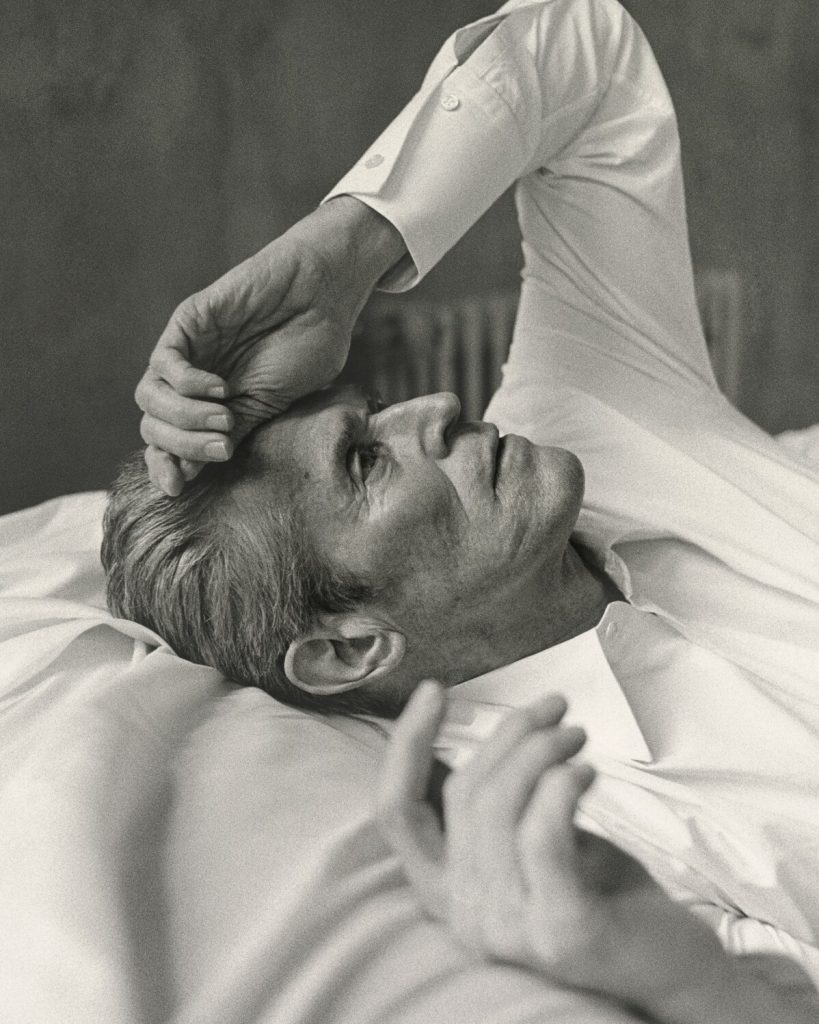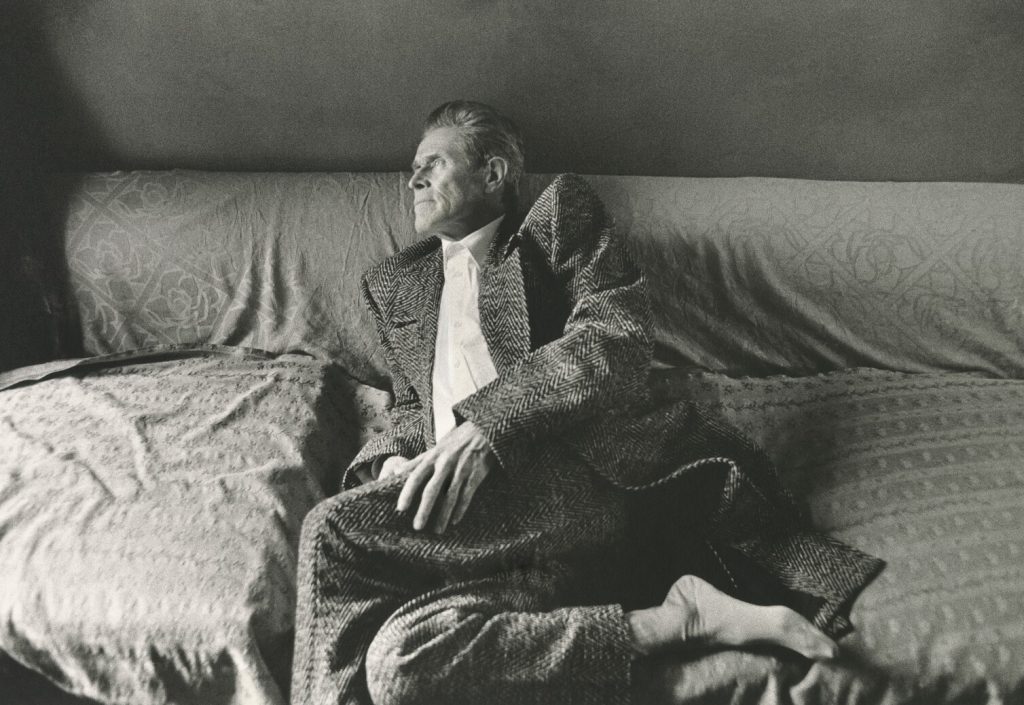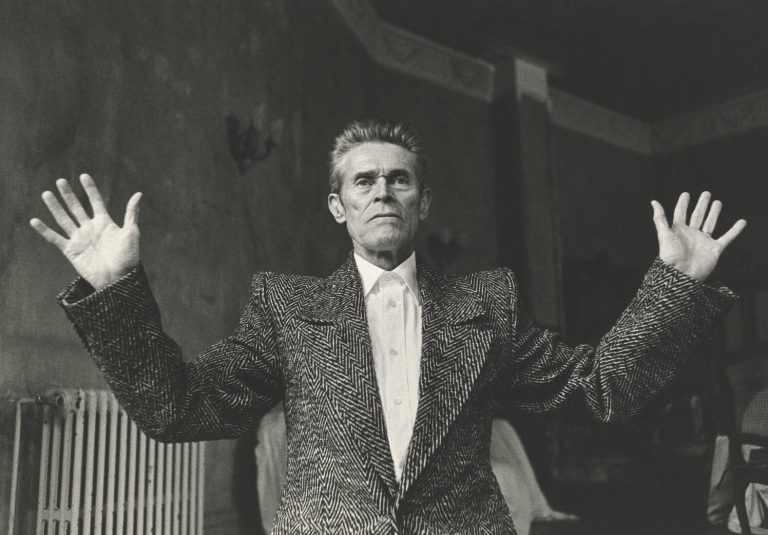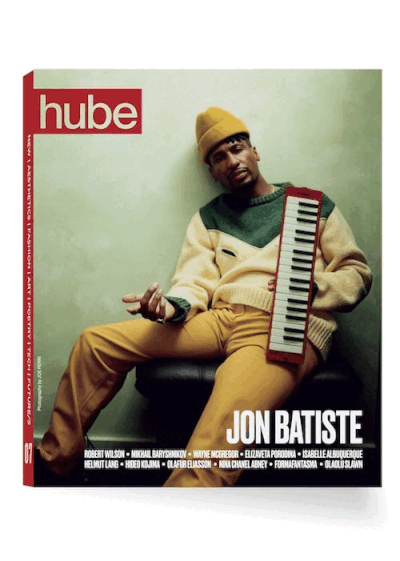

Willem Dafoe is no less mesmerizing beyond the screen, with his uncanny ability to momentarily captivate you, leaving you frozen and hanging onto his every word. With every glance, move and gesture, he creates a canvas of expression, influenced by his tendency to place greater trust in the body than in the mind: “I trust the wisdom of the body, which is not totally in our control, more than the wisdom of thought—which is sometimes too controlled.”
This story, captured by Dudi Hasson and Gabriella Norberg in London, offers you a little of both. We usually refrain from using such words to describe our work, but delving into this feature is an undeniably delightful experience. Join us for an interview with Willem Dafoe.
hube: You have a background in physical theatre, which is based on the mechanics and movements of the human body. Do you think that body language and gestures are more expressive and straightforward than words?
Willem Dafoe: Apples and oranges—but they are both fruit. I love to dance, which often is without text; yet I love reading poetry, which is often without gesture or movement. Words tend to point to meaning and an urge to make sense of something. Physical action is pure, it is what it is, so I tend to trust it more. Also I trust the wisdom of the body, which is not totally in our control, more than the wisdom of thought, which is sometimes too controlled…
h: Many of the characters you have played live in fictitious, imaginary futures. When you think about what really lies ahead, what do you see?
WD: I don’t think of the future of this world much. I mostly think of what is beyond this world when I think of the future, and to think about that world I think of the distant past—the beginning of this life.
h: Your vast and diverse experience in film and theatre must have been, and continue to be, a fascinating journey filled with very different characters. Which of these characters were difficult to part with? Have you ever felt like “staying in character” after a film was done?
WD: Characters are revealed through circumstance. Once those situations are removed the character retreats back to where it came from inside of you. We are all capable of any behaviour or thought, it’s the situation and your will that invites a character to emerge. I don’t hold onto that once the camera stops rolling, the acting partners go away, the scenography is dismantled. Besides, I want to make space for a new adventure, so you have to leave what you’ve done behind. Having said that, if you’re pretending to be someone else for 12 hours or more of a work day, the character’s thoughts or feelings are going to linger just by sure habit, but to have them remain I would have to encourage staying in that mode—which I don’t. I don’t mean you erase that experience, you just don’t prolong it, and what you’ve learned from or experienced as that character goes into memory and intuition for the future.

